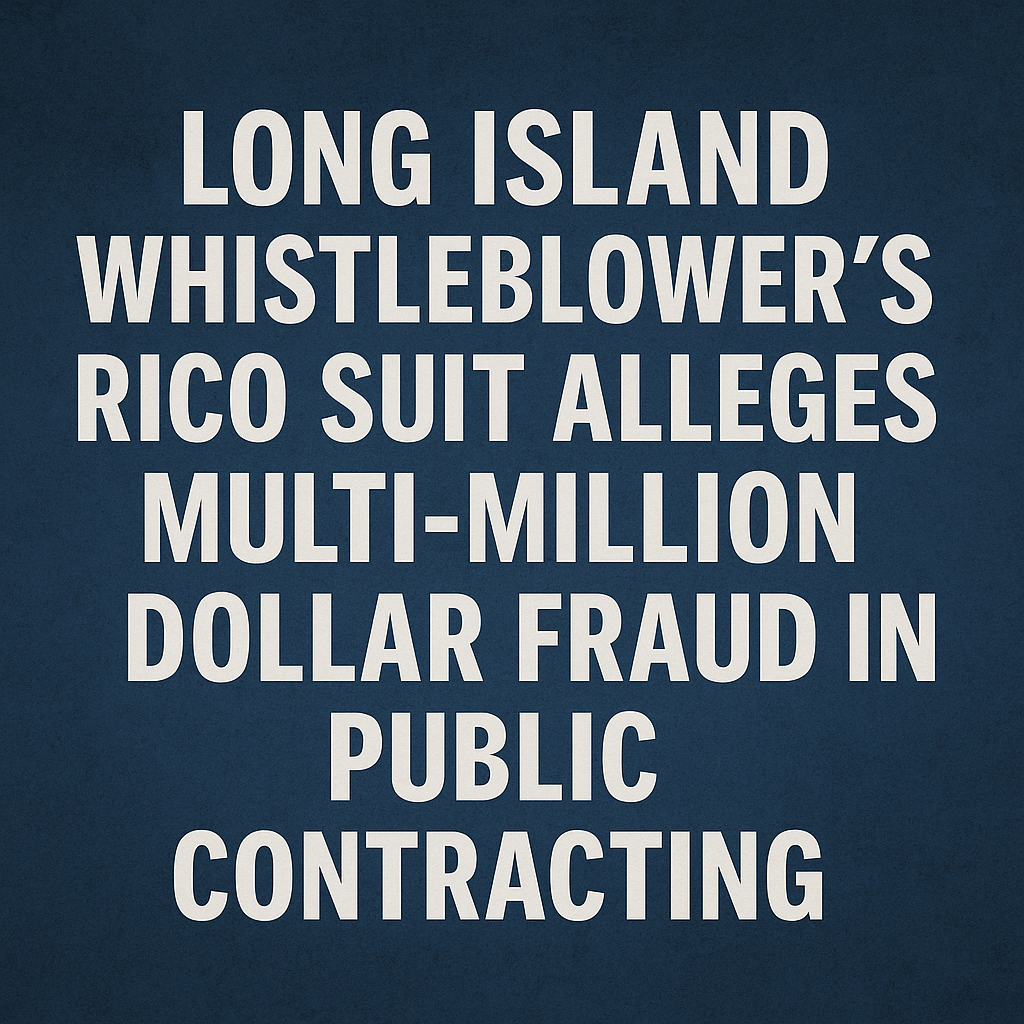By Frank Parlato
The U.S. Department of Justice has charged Alon, Oren, and Tal Alexander with sex trafficking. According to the indictment, the brothers allegedly used their social status, events, and digital platforms to lure women into exploitative sexual conduct. All three brothers have pleaded not guilty. The charges, based on the government’s expanded post-2019 interpretation of federal sex trafficking laws, carry a sentence of 15 years to life.

The Alexanders are currently detained at the Metropolitan Detention Center in Brooklyn pending trial – now scheduled for January 2026
The federal case appears to trace back to a civil lawsuit filed by Australian national Kate Whiteman.
In that suit, Whiteman accuses Alon and Oren Alexander of abducting and raping her in 2012 at Sir Ivan’s Castle in the Hamptons.

Deleted Messages and the Defense’s Early Pushback
Whiteman never reported the incident to police, sought medical care, or told friends or family.
A decade later, she demanded $35 million to stay out of court. Complicating the case further, Whiteman allegedly deleted prior Facebook messages with the brothers using the platform’s “unsend“ feature. But the Alexanders had preserved screenshots of communications that appear to contradict her claims.
The messages include sexually explicit content sent by Whiteman both before and after the alleged assault, along with party invitations and evidence of friendly contact for more than two years afterward.


Part 2 ended with the December 30 bail hearing, where prosecutors painted Alon Alexander as a global predator. In return, Alon Alexander’s attorney, Howard Srebnick, demolished the FBI agent called to testify on how dangerous Alon was. She admitted, under oath, to knowing almost nothing—and was unprepared to testify.
Now, in Part 3, the hearing takes a constitutional turn.
Privileged, Your Honor
What began as a bail hearing veered into a constitutional confrontation. Srebnick was serious.
“Your Honor, I have a motion — or at minimum, an inquiry.”
The judge looked up.
Srebnick said, “The agent and the prosecutor have revealed that the government has been looking at the witness files Alon Alexander was compiling… as part of his defense in the civil cases.”
He let that hang for a moment.
“It sounds to me like there is an attorney-client privilege or work product issue that has just surfaced here — and I am concerned.”
Assistant U.S. Attorney Elizabeth Espinosa didn’t object. She couldn’t. Because the government had just admitted — in open court — that it reviewed what appeared to be defense preparation materials.
“So I am filing a motion for a hearing on what the FBI has been doing to access the witness files compiled by Alon Alexander.”
Everyone turned.
“Who, incidentally, Judge, is a lawyer.” Srebnick said, “He went to law school and he was a litigant being sued. He was conferring…”
Judge Sanchez interrupted, but even he didn’t sound confident.
“I understand… but I also understand that he does not practice and has not practiced as a lawyer.”
“Still,” Srebnick pressed, “he was being sued. He compiled these files to defend himself. They were witness files. These are protected materials, Judge.”
Sanchez didn’t rule. He punted.
“This is not a substantive case before this Court. We’re here on an out-of-district arrest warrant. If that is something that is appropriate, it needs to be filed in the case in New York.”

The Family Puts Everything on the Line
Srebnick nodded. But before sitting down, he fired one last shot:
“Just so it’s clear — we are making the request right now: that the government cease any further access of privileged materials.”
The courtroom fell silent—not because the government had prevailed, but because it had been caught.
In arguing against bail, the government came on strong as if their word alone was sufficient to persuade any judge. What they lacked were witness files and supporting evidence. Now, a possible breach of privilege—on a case built around 42 unnamed women and a decade-old party story.
The longer it went, the more the DOJ looked like a debt collector for a civil lawsuit.
The FBI had just taken a hit. Now it was the defense’s turn.
Srebnick said, “Judge, we are prepared to put on witnesses on the issues of flight risk…”
But before he could proceed, Judge Sanchez made sure:
“Let me ask first if the Government has concluded its presentation.”
Espinosa’s voice was firm but quiet:
“Yes, Your Honor.”

Now came the rebuttal.
“So you’ve heard about the one factor — the strength of the evidence,” Srebnick began, not missing a beat. “Now we’d like to present to the Court the bond conditions and the people who are going to support them.”
He outlined the proposal: A bond in any amount the Court wished. A hundred dollars or a billion — didn’t matter. The entire Alexander family was prepared to back it.
“Alon Alexander, his two brothers, Alon’s mother, and his father will all sign the bond,” he explained. “If any one of the brothers breaches their obligation… the bond would be forfeited. It would render the entire family destitute.”
No evasions. No loopholes. This was a family willing to go broke for their son.
Then came the sealed exhibit — financial statements, tendered confidentially to avoid “revealing confidential financial information of the family.” The government had no objection.
The Mother Takes the Stand
Next came Orly Alexander, the mother. Israeli-born, composed, and ready.
“Please raise your right hand.”
She did.
“State your full name.”
“Orly Alexander.”
Srebnick began softly.
“Ms. Alexander, tell the Judge a little bit about yourself and your background.”
She answered:
“I came here at 17. Started my life with my husband. Went to college here. Paid college loans…”
This wasn’t the voice of the “criminal enterprise” the prosecution had painted. This was a mother who had worked, built, and sacrificed — now standing ready to lose it all to keep her son home and fighting.

Sitting in the witness chair, Orly Alexander had done what no FBI report or government proffer could: she made the courtroom feel the cost of accusation.
She built a company, raised sons, became a citizen—and now she’d risk everything to bring one of them home.
The government, through AUSA Espinosa, tried to press the angle of foreign travel, of Israeli passports, of family overseas.
Q: “Do you also hold an Israeli passport?”
A: “Yes, I do.”
Q: “And do you travel to Israel from time to time?”
A: “Yes, I do.”
Q: “And have you always come back?”
A: “Yes, I do.”
There was no apology in her tone. She had nothing to hide.
Then came Srebnick’s redirect — short, surgical, devastating.
Q: “What family do you have in Israel?”
A: “An old mom.”
Q: “How old is your mom?”
A: “89.”
Srebnick closed it out with a question meant to undercut the prosecution’s central fear — that Alon might flee to Israel to avoid trial.
Had any of her sons ever said they’d flee to Israel to escape the FBI?
Her answer was direct, unequivocal — “No.”
“Thank you, Orly,” Srebnick said.
A mother. A marriage. A business. Four sons. A billion-dollar bond. And next?
SREBNICK: “Your Honor, our next witness will be presented by Miss Walsh.”
The government had called its case explosive. The defense now made it look inflated.
The Women Who Knew Him
After the clash with FBI Special Agent Hampsch, the courtroom atmosphere softened.
The courtroom, still tense from the combative cross-examination of Special Agent Hampsch, now turned warmer. The harsh light of accusation softened under the testimony of two women: one who married Alon Alexander; the other who once loved him.
First came Shani Alexander, his Israeli-born wife. Her proffer came through defense lawyer Raymie Walsh — a former federal defender with a calm, commanding tone. Walsh didn’t shout. She didn’t jab. She just told a story. And then let Shani confirm it.
“He is not a drug user,” Walsh said, quoting Shani. “Nor is she. She has never seen him impose or provide drugs to any woman.”
Shani nodded.
“She has never witnessed any woman screaming for help or accusing anyone of any sexual assault.”
The Government’s attempt to paint the Alexander brothers as repeat predators — men whose wealth, charm, and yachts masked predation — was now being answered with firsthand denials, under oath.
Shani described women at parties voluntarily arriving, voluntarily disrobing, even laughing. She remembered no coercion, no fear.
AUSA Espinosa: “You do not know what he was doing when you were not with him, do you?”
Shani: “No.”
It was honest. Painful. Fair.
Then came the kicker. The Government pushed the angle of international flight: Israeli passport, travel history, and ties abroad.
Espinosa: “Have you had any conversation with your husband about leaving the United States?”
Shani: “Never.”
She added quietly, “And I am willing to bring my passport.”
A small line—with a big impact.

It wasn’t rehearsed. It was a woman tired of seeing her family raided at 5:00 a.m. by agents with guns and lasers and children screaming in terror. She wasn’t hiding. She was begging to be seen.
The Ex Who Stayed”
The next witness was unexpected.
SREBNICK: “Judge, I present Danielle Epstein as a character witness.”
THE COURT: “Okay. I’m going to allow it.”
She took the stand. Poised. Lawyer. Ex-girlfriend. Former law school classmate. Danielle Clara Epstein had known Alon since they were teenagers, from 2008 to 2011 romantically, then friends after.
Epstein: “We practically lived together for over a year… I spent a lot of time with him and never did I witness anything even remotely close to what is being alleged here.”
She said it without hesitation.
“He taught me a lot. He introduced me to people who are my closest friends to this day.”
A Georgetown-trained lawyer— not a hanger-on, but someone trained to spot lies.
“During the times a lot of these claims are being alleged… we practically lived together.”
She didn’t need to say more. Her presence said enough.
The Fortress Offer
The defense had made its case. Piece by piece. Witness by witness.
First came character and credibility — wife, mother, former girlfriend, all saying: Alon is no predator.

Then came logistics — Gil Neuman, the uncle with a non-waterfront home, ready to host the entire family.
Then came muscle — Don DeLucca, former police chief turned private security enforcer with V2 Global, offered professional monitoring backed by a DEA deputy administrator, a CBP vet, and years of successful federal compliance.
DeLucca: “We have… watched over folks for up to two years while they are under indictment… always showed up at the time of trial.”
The prosecution tried to minimize his role.
ESPINOSA: “You don’t work for the Court? Or the Government? Or Pretrial Services?”
DELUCCA: “No.”
ESPINOSA: “So you’d be paid by the Defendant?”
DELUCCA: “Yes.”
SREBNICK: “By the way, we’d have no objection if the Government wants to pay for it.”
That line landed like a jab — mocking the Government’s skepticism while showing the family’s willingness to pay, obey, and stay.

The No-Fly Zone
Next, Srebnick turned to air travel — the Government’s key theory of flight.
“The Alexanders,” he said, “would all be on a no-fly list.”
The seaplane?
It wasn’t Alon’s.
It was Tropic Air’s, and the family merely invested in it.
“None of them are pilots.”
And if the Court wanted extra assurance, the defense was ready:
“We would do whatever is necessary to lock down that plane.”
“We trust Don DeLucca enough. I would authorize them to shoot to kill if the Alexander boys violate the bond…”
THE COURT: “Mr. Srebnick, obviously they cannot do things like that…”
SREBNICK: “Law enforcement couldn’t either.”
He meant it as hyperbole — but the tension in the room didn’t break.
Srebnick then laid out the terms of surrender.
“24/7 house arrest. Video and audio surveillance. Ankle bracelets. Alarms. You pick the home. You pick the company.”
And if the Court wanted more?
“We’re ready to post a corporate surety bond… $100,000? $200,000? With neighbors and community members pledging property if needed.”
He gestured toward the gallery. Neighbors from Miami Beach who had come to say Alon was a good man. A safe man.
The Israel Argument
Next came the prosecution’s anchor: Israel and extradition.
Srebnick was ready.
“We also have legal arguments to rebut the Government’s claim about extradition from Israel.”
He was signaling to Judge Sanchez that the Government’s theory of uncatchable escape to Israel was legally flawed, diplomatically outdated, and practically false.

Assistant U.S. Attorney Espinosa stood at the podium.
She knew the defense had landed blows: a weak FBI witness, unanswered Jencks demands, and a parade of credible character witnesses.
“This case is not just about risk of flight,” she said. “It is about danger—extraordinary danger—to the community.”
Then she invoked the presumption: Mandatory detention under 18 U.S.C. §1591. The burden, she said, had not been overcome.
“For 20 years, the Defendant and his brothers drugged and raped women,” she claimed. “Dozens of victims. High school. College. Adulthood. This was a pattern.”
She invoked images of screaming victims, incapacitated bodies, restrained limbs, drugged cocktails, and the term that would define her entire pitch: gang rape conspiracy.
It was cinematic, moralistic, visceral- and urgent. Unmentioned was that even by the government’s calculations, it had been four years since any woman had allegedly been abused.
Espinosa made it personal: “This was a crime committed in their homes,” she said. “Around their brothers. Around their friends. With impunity.”
Then she pivoted to Israel.
“Money is no object,” she said. “They admitted as much.”
She turned their proposed $100 million bond into an argument for detention. If they had unlimited resources, she argued, they had unlimited ways to flee.
She didn’t need to prove they would flee — only that if they chose to, it would be impossible to stop them.
“The issue isn’t whether extradition from Israel is impossible,” she said.
“It’s that we can’t guarantee it. And if that’s the fallback, they’ve already fled.”
She emphasized that they had consulted with the DOJ’s Office of International Affairs.
“Extradition is slow, uncertain, political.”
This wasn’t a hypothetical flight. It was, in the Government’s eyes, a geopolitical escape route already paved with dual citizenship, elite networks, and friendly terrain.
And it was, of course, exaggerated and preposterous.
The real issue was to keep these brothers in lockup so they could not be effective in preparing their defense. That was what it was always about,
Dismissal of Private Security
Finally, Espinosa aimed at the DeLucca proposal.
She referenced the Southern District of New York’s rejection of a similar proposal in the Sean “Diddy” Combs case.
The judge had listened as the government outlined a fortress of fears: boats, jets, foreign ties, and a security company allegedly no match for the cunning of a man with everything to lose.
Srebnick rose again.
“Let me start by telling you that in this very district—in 1999—a man accused of murder was released on conditions less onerous than what we’re proposing here.”
“You want precedent? You’ve got it. Serious cases, serious defendants — out on bond with private security. It can be done. It has been done. And it worked.”
Judge Sanchez focused on this case.
He said. “This is not about hypotheticals. This is about the specific facts, the nature of the charges, the defendant’s individual circumstances…”
Srebnick pressed forward.
“You say he’s a flight risk because he has family from Israel. Judge, under that logic, so am I. So are many Americans with roots elsewhere. My parents were Cuban. My grandparents were Polish. Are we now to assume flight based on bloodline?”
The judge didn’t flinch.
“Mr. Srebnick, it’s not about heritage. It’s about continuing foreign connections, travel patterns, access, means, and the charges themselves.”
And the charges were brutal. Dozens of women. A 15-year mandatory minimum. A potential life sentence.
Srebnick said, “Alon Alexander has known of this investigation for months. He didn’t run. He didn’t hide. He didn’t buy a ticket, cut a bracelet, or board a boat. He stayed. He came to court. He brought his family.”

He gestured toward the Alexanders. They sat in silence.
“And let’s talk about that family. You’ve called their commitment dangerous. I call it honorable. They’re willing to lose everything to secure his release. Isn’t that the point of a surety?”
“You want to know who’s less likely to flee? A man whose family would be bankrupted if he did.”
Then came the heart of the defense.
“You can’t say, ‘They’ve put up too little, so we can’t trust them,’ and then say, ‘They’ve put up too much, so they must be trying to help him escape.’ That’s a trap. That’s not justice.”
Judge Sanchez nodded.
The rebuttal was over.
Next came judgment. Would Judge Sanchez side with the government and keep Alon Alexendar in jail awaiting trial, or let him make bail?
To be continued….












